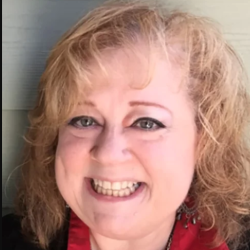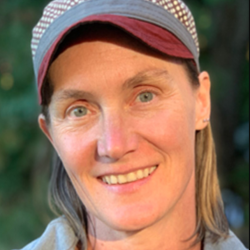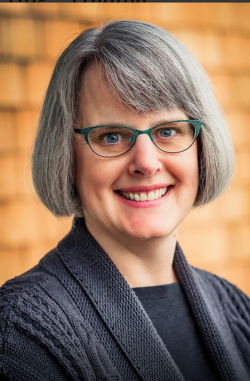Behavioral Health
 In collaboration with PCC’s Family and Human Services program, PDT is proud to offer a micro-credentialing series in Behavioral Health First Aid. Gain tools to support mental health and well-being and deepen your understanding of behavioral health. This series includes four stand-alone courses that together bring an elevated set of skills in mental health and suicide first aid for both youth and adults.
In collaboration with PCC’s Family and Human Services program, PDT is proud to offer a micro-credentialing series in Behavioral Health First Aid. Gain tools to support mental health and well-being and deepen your understanding of behavioral health. This series includes four stand-alone courses that together bring an elevated set of skills in mental health and suicide first aid for both youth and adults.


Courses
The following courses are available as part of the Behavioral Health First Aid micro-credentialing series or as stand-alone courses. In order to qualify for a MicroCredential Certificate of Completion, students must choose and complete three out of the four Behavioral Health First Aid courses listed below.
Mental Health First Aid: Adults
Provides key skills to help adults who are developing a mental health problem or experiencing a mental health crisis. Covers mental health literacy, including identifying, understanding, and responding to signs of mental illness. Required: Full attendance is mandatory to meet adult Mental Health First Aid certification requirements from the National Council on Behavioral Health.
You’ll learn
- How to recognize potential risk factors and warning signs for a range of mental health problems, including depression, anxiety/trauma, psychosis and psychotic disorders, substance use disorders, and self-injury.
- How to use a 5-step action plan to help individuals in crisis connect with appropriate professional help.
- To examine the prevalence of various mental health disorders in the United States and about the need for reduced stigma.
- To apply knowledge of available professional, peer, social, and self-help resources in order to help someone with a mental health problem, treat and manage the problem, and achieve recovery.
- To assess personal views and feelings about mental health problems and disorders
Who should take it
- Coworkers
- Caregivers
- Faculty
- Clergy
Mental Health First Aid: Higher Education
Prepare your campus to address mental health and substance use challenges commonly experienced in higher education settings. Developed by people with lived experience of mental health challenges and professionals, this course teaches early intervention techniques and improves mental health literacy to help you understand, identify, and respond to signs and symptoms of mental health and substance use challenges.
You’ll learn
- the relevance of mental health in the campus community.
- about risk factors and protective factors specific to the higher education setting.
- how to use the MHFA Action Plan (ALGEE) in scenarios designed specifically for faculty, administration, and students.
- how to access national, campus, and community mental health resources.
- how to assess for risk of suicide or harm.
- how to listen non-judgmentally
- how to give reassurance and information.
- how to encourage professional help, self-help, and other support strategies
Who should take it
- Students ages 18 and up
- Parents/caregivers
- Faculty
- Resident advisors
- Academic and career advisors
- Campus clergy
- Financial aid employees
- Coaches and athletic personnel
- Administrators
Mental Health First Aid: Youth
Provides key skills to help an adolescent (12-18 years) who is developing a mental health problem or experiencing a mental health crisis. Covers common mental health disorders and potential crises such as helping a young person: who is having a panic attack, is contemplating suicide, or is struggling with substance use disorders. Full attendance is mandatory to meet Youth Mental Health First Aid certification requirements from the National Council on Behavioral Health.
You’ll learn
- how to recognize potential risk factors and warning signs of a variety of mental health challenges common among adolescents, including depression, anxiety, psychosis, eating disorders, AD/HD, disruptive behavioral disorders, and substance use disorders.
- how to use a 5-step action plan to help a young person in crisis connect with appropriate professional help.
- how to interpret the prevalence of various mental health disorders in youth within the U.S. and about the need for reduced negative attitudes in their communities.
- how to apply knowledge of available professional, peer, social, and self-help resources in order to help someone with a mental health problem, treat and manage the problem, and achieve recovery.
- how to assess personal views and feelings about mental health problems and disorders.
Who should take it
- Students ages 18 and up
- Faculty
- Parents/caregivers
- Advisors/counselors
- Academic and career advisors
- Campus clergy
- Coaches and athletic personnel
- Administrators
ASIST: Applied Suicide Intervention Skills Training
Provides key skills to recognize, intervene, and assist those at risk for suicidal thinking and behavior. Includes identifying appropriate support strategies to keep an individual safe.
You’ll learn
- To understand how personal and societal attitudes affect views on suicide and interventions
- To provide guidance and suicide first aid to a person at risk in ways that meet their individual safety needs
- To identify the key elements of an effective suicide safety plan and the actions required to implement it
- To appreciate the value of improving and integrating suicide prevention resources in the community at large
- To recognize other important aspects of suicide prevention including life promotion and self-care
Who should take it
- Students ages 18 and up
- Faculty
- parents/caregivers
- advisors/counselors
- Academic and career advisors
- Campus clergy
- Coaches and athletic personnel
- Administrators
Course Planning Guide
Summer 2024
MHFA Youth
- Date and time: CRN 32948 August 30, 8:30am-5pm
- Location: Fully online
- Instructors: Tuleya and Signorini
- Tuition: $158
Fall 2024
MHFA Higher Education
- Dates and times: October 25 and 26, 9am-3:20pm
- Location: In-person at the Sylvania Campus
- Instructors: Garland-Forshee and Guyer
- Tuition: $189
Winter 2025
MHFA Youth
- Date and time: Feb 22, 8:30am-5pm
- Location: Fully online.
- Instructors: Tuleya and Chan
- Tuition: $158
Meet the Instructors
Andrew S. Garland-Forshee, PhD, HS-BCP
 Dr. Andrew has over 25 years of experience in the fields of education, family services, and social and human services. These experiences range from at-risk youth programs, early education environments, parenting education, and early childhood laboratory settings. He currently serves as Department Chair of the Family and Human Services program
Dr. Andrew has over 25 years of experience in the fields of education, family services, and social and human services. These experiences range from at-risk youth programs, early education environments, parenting education, and early childhood laboratory settings. He currently serves as Department Chair of the Family and Human Services program
Sally Guyer, MSW, HS-BCP
 Sally has 30 years of experience working with children, youth, and families in a variety of settings. Sally is also the Clinical Director for an Adoption Agency and provides training and consulting throughout the Pacific Northwest. Sally has spent her professional life dedicated to helping families and children, especially children with trauma backgrounds. Sally has recently been named as one of the top MHFA instructors in Oregon.
Sally has 30 years of experience working with children, youth, and families in a variety of settings. Sally is also the Clinical Director for an Adoption Agency and provides training and consulting throughout the Pacific Northwest. Sally has spent her professional life dedicated to helping families and children, especially children with trauma backgrounds. Sally has recently been named as one of the top MHFA instructors in Oregon.
Martha Ochoa-Leyva, MA, LPC
Martha was born in Mexico and immigrated to Oregon as a child with her family. She is an ascendant of the Nayhult people, and this is how she centers her work, using her ancestor’s wisdom to guide healing, knowledge, and community justice. Martha holds a Master’s in Clinical Mental Health Counseling from George Fox University and a Bachelor’s in Psychology with a minor in Legal Studies from Western Oregon University. She has worked in multiple support areas, ranging from tenant-landlord rights to teen/young parent home visiting, Head Start, LGBTQAI+ affirming care, school-based mental health, and K-12 professional development, and is a part-time faculty at PCC in the Family and Human Services Program.
Jill Tuleya MA, E-RYT, C-IAYT

Jill has been with PCC since 2012 and teaches Adult, Youth, and Higher Education Mental Health First Aid courses for Human and Family Services (HUS) and Community Education. Jill is also the MHFA Coordinator for HUS.
Sik Yin Chan, EdD, MSW, LCSW, CFSW

With over 25 years as a social work administrator and practitioner, 17 years of teaching experience, and a strong research and evaluation background; integrating theories and research into practices has always been Dr Chan’s passion. Currently, he is an adjunct instructor in the Family and Human Services program and a therapist with Real Life Counseling.
Dr. Chan considers himself a lifelong learner and has a Doctor of Education from Concordia University. He received a Master of Social Work from Portland State University, a Graduate Certificate in Gerontology, and a BA degree in Social Work from Concordia. He obtained a license to practice clinical social work in both Oregon and Washington states, and he is also a certified financial social worker.
Dr. Chan has experience working with adults of all ages and their families. As a bi-lingual and bi-cultural Licensed Clinical Social Worker, he specializes in change management, career counseling, cultural adjustment, cross-cultural marital counseling, financial therapy, and retirement.
Shauna Signorini, BS
 Shauna is a seasoned professional speaker on mental health, trauma, and wellness. With 15 years of experience as a Family Peer Support Specialist, she brings practical knowledge and expertise to her work. Shauna teaches Mental Health First Aid for Adults and Youth. She enjoys sharing the hope of recovery. She loves being in the water and playing with her two Ragdoll cats.
Shauna is a seasoned professional speaker on mental health, trauma, and wellness. With 15 years of experience as a Family Peer Support Specialist, she brings practical knowledge and expertise to her work. Shauna teaches Mental Health First Aid for Adults and Youth. She enjoys sharing the hope of recovery. She loves being in the water and playing with her two Ragdoll cats.
Student Testimonial
“Many faculty and staff have asked me how they are supposed to handle the increasing instances of mental health crises among our student population, and managers have similar concerns about having basic skills to be able to assist faculty and staff in crisis. I found completion of the microcredential at PCC that included Mental Health First Aid Youth and Adult and Applied Suicide Intervention Skills Training classes to be very useful in gaining baseline skills to be able to talk with those facing mental health problems, and potentially serving as connection points to appropriate professionals. I would encourage any managers, faculty, staff, and students at PCC to complete this credential. If being trained in mental health first aid was as common as being trained in physical first aid, we would help reduce the stigma of discussing mental health issues and seeking assistance!” Joyce Kaplan, Former Program Dean/Health & Emergency Professions
Research resources
Micro-Credential Certificate request
Mental Health First Aid Micro-Credential Certificate request
